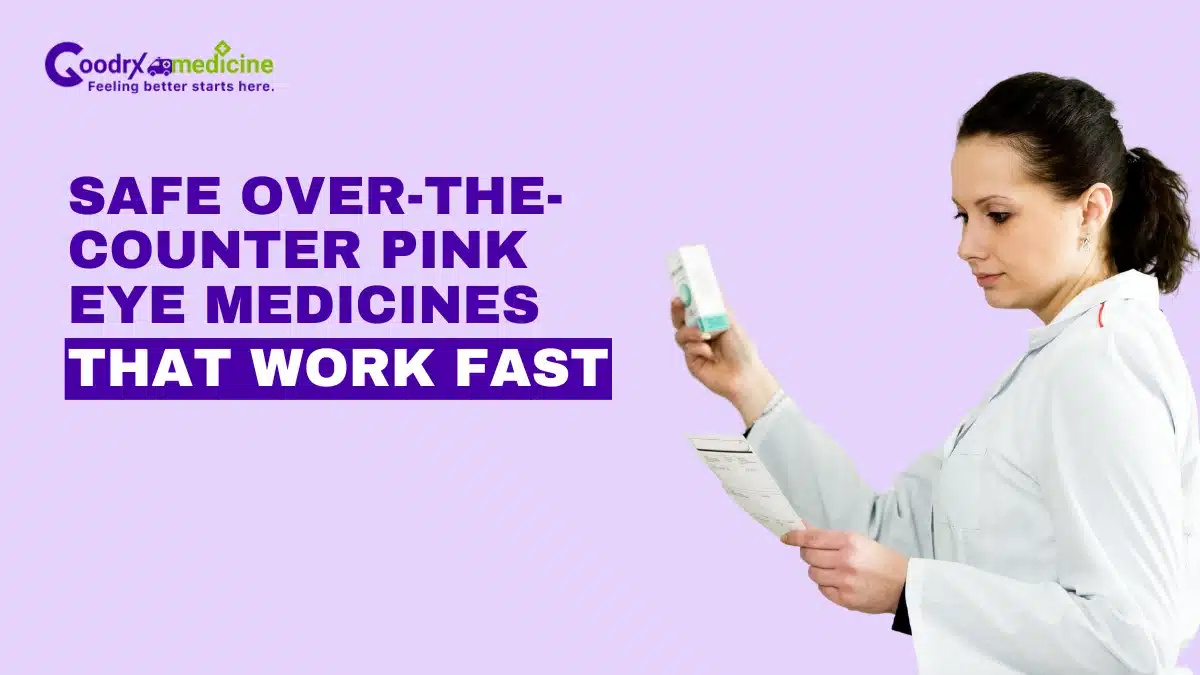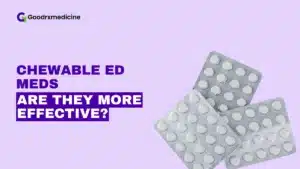Pink Eye, or Conjunctivitis, is one of the most common eye problems in the U.S., with around 6 million cases yearly. The redness, itching, and watery eyes can make daily life uncomfortable.
While prescription treatment is often the safest route, many people turn to over-the-counter Pink Eye medicine for quick relief. These options can help ease symptoms, but knowing their limits is key to protecting eye health.
This article will cover the types of Over-the-counter (OTC) treatments, what they can and can’t do, and when to seek medical help. Let’s guide you toward the right solution for your eyes.
Over-the-counter eye drops for Pink Eye
Over-the-counter (OTC) eye drops are the most common choice for mild Pink Eye symptoms. They can reduce dryness, redness, or irritation. However, their benefits depend on the cause of your Pink Eye.
Some people see quick improvements, while others might still need prescription treatment to recover fully.
These are the most common and effective over-the-counter Pink Eye medicines you can try:
Save up to 90% on your medicine bills
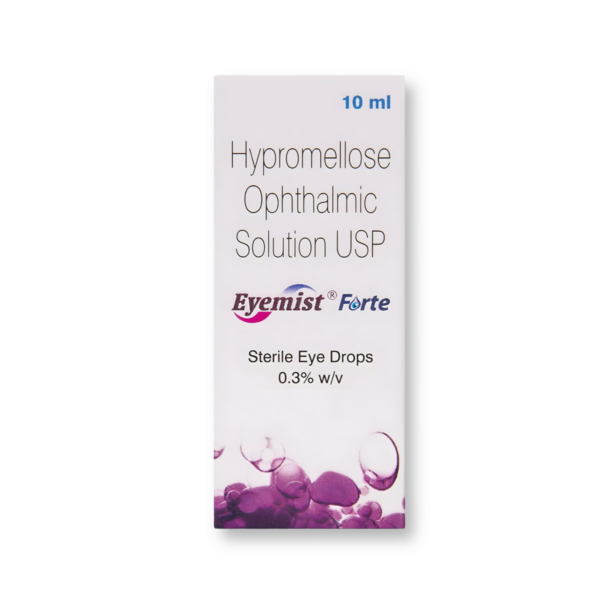
Eyemist Forte 10 ml
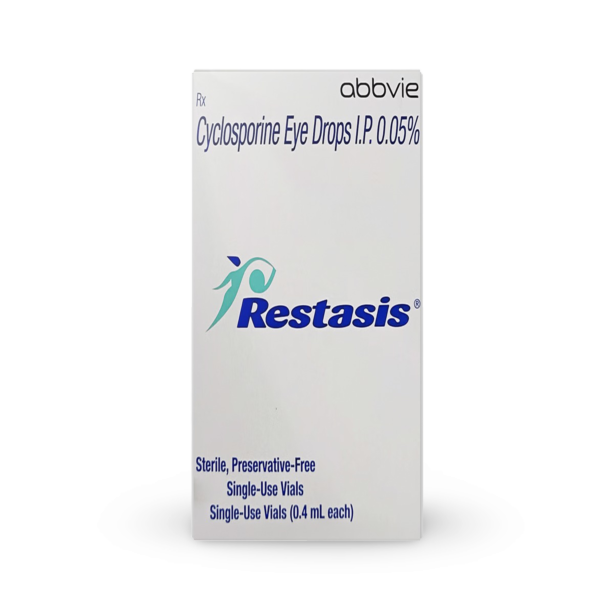
Restasis 0.05% Ophthalmic Emulsion 0.4ml
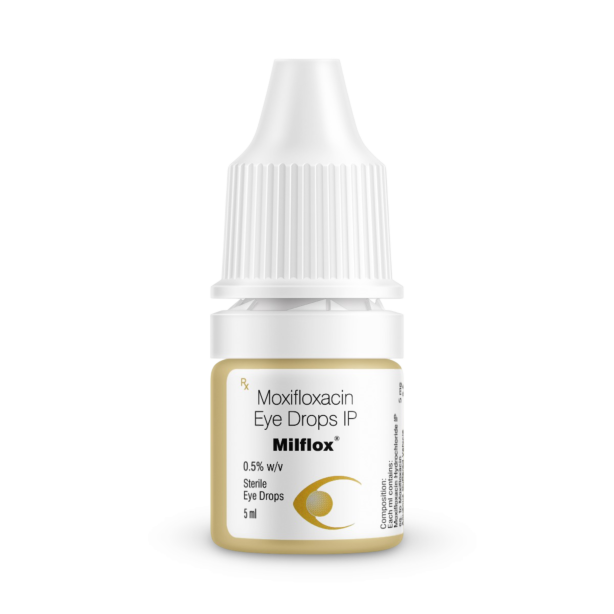
Milflox 0.5% 5 ml
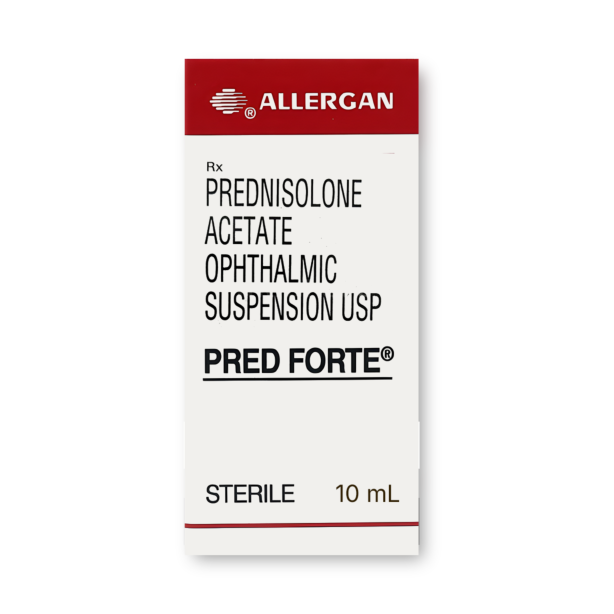
Pred Forte 10 ml
1. Lubricating eye drops
Lubricating eye drops, also called artificial tears, are used as a Pink Eye treatment to keep your eyes moist and reduce discomfort. They are especially helpful if smoke, wind, or dry air worsens your symptoms.
You might choose lubricating drops in case of mild Pink Eye symptoms without any heavy discharge or pain. They:
- Soothe dryness and irritation
- Form a protective layer on the eye’s surface
- Can be used several times a day
These drops do not treat infection but can make your eyes feel more comfortable while they heal naturally.
2. Antihistamine eye drops
Antihistamine eye drops are meant for allergy-related Pink Eye, known as allergic Conjunctivitis. Allergens such as pollen, pet hair, or dust mites can trigger a Histamine (a chemical) response in your eyes, resulting in redness, itching, and swelling.
They work best for allergy-related cases and:
- Reduce itching and swelling
- Ease redness caused by allergic reactions
- Can be combined with oral allergy medicine for better relief
If your symptoms flare during pollen season or around pets, antihistamine drops may help you feel better quickly.
3. Decongestant eye drops
Decongestant eye drops shrink blood vessels in your eyes, making eye redness fade quickly. They can give fast results, but they are not for long-term use.
Prolonged use may cause rebound redness, where the eyes look even redder after the drops wear off. They:
- Reduce visible redness fast
- Offer a temporary cosmetic improvement
- Do not treat infection or inflammation
For safety, limit their use and switch to other treatments if symptoms persist.
4. Pain relievers
Pain relievers can help if you have eye pain along with Pink Eye. OTC oral pain medicines may be used in short-term situations and can help you feel more comfortable.
These may include:
- Acetaminophen for mild pain relief
- Ibuprofen for pain and inflammation
Always follow the dose instructions on the label. These do not treat the cause of Pink Eye, but can make it easier to manage daily activities while you recover.
Precautions when using OTC Pink Eye medicine
When using any medicated eye drops for Conjunctivitis, keep the following in mind:
- Wash your hands before and after touching your eyes or applying drops.
- Avoid sharing towels, pillows, or eye makeup.
- Do not use expired eye drops.
- Remove contact lenses before applying drops.
- Store products as directed, usually in a cool, dry place.
Are Over-the-Counter medicines effective?
Over-the-counter (OTC) treatments for Pink Eye can improve comfort and relieve Conjunctivitis symptoms such as dryness and irritation, but do not cure infections. As per the American Academy of Ophthalmology, mild allergic Conjunctivitis and environmental irritations typically respond well to OTC antihistamines or lubricating eye drops and allergen avoidance.
However, Bacterial and Viral Conjunctivitis often require medical evaluation and may require prescription treatments such as antibiotics or antivirals, especially in moderate to severe cases. OTC products can help manage symptoms temporarily while awaiting medical care. Still, they are not a cure for all types of Pink Eye.
What OTC drops can and can’t treat
OTC Pink Eye medicines can help manage symptoms, but don’t cure infections. Knowing the limits of OTC products can help you make a safe choice.
OTC drops can help with:
- Dryness from environmental factors like wind, smoke, or computer strain
- Itching caused by Allergic Conjunctivitis
- Temporary redness relief from allergies or mild irritation
They can’t:
- Cure Bacterial Pink Eye
- Shorten the Viral Pink Eye duration
- Prevent the spread of contagious Pink Eye.
If your symptoms include thick discharge, intense pain, or vision changes, prescription treatment is necessary.
Home remedies
Some people pair OTC products with gentle home remedies to ease Pink Eye discomfort. While these can be soothing, they do not replace medical care for infections.
Popular home remedy options for Pink Eye include:
- Warm compresses to reduce swelling and pain
- Cool compresses for itch relief
- Tea bags for mild anti-inflammatory effects
- Honey (only as part of sterile eye washes, with medical guidance)
Always use clean materials and avoid touching your eyes to prevent further irritation.
When to see a doctor
While many mild Pink Eye cases improve on their own, specific symptoms require professional care. Seek medical help if:
- Symptoms last more than a week.
- There’s intense pain or light sensitivity.
- Vision becomes blurry or changes suddenly.
- You have a high fever or severe swelling.
- You have a weak immune system or other eye conditions.
Children and older adults should be checked by a doctor early, as infections can spread quickly or cause complications.
Conclusion
Over the counter Pink Eye medicine can help relieve symptoms like dryness, redness, and itching, especially for mild cases caused by allergies or environmental irritants. Lubricating drops soothe and protect the eyes, while antihistamine drops reduce allergic reactions.
Decongestant drops offer quick redness relief but should be used briefly to avoid rebound effects. Pain relievers and home remedies can ease discomfort, but do not treat infections. OTC treatments improve comfort but do not cure bacterial or Viral Pink Eye, which often requires medical evaluation and prescription medicines.
If symptoms worsen or last long, seeing a doctor is essential. Proper hygiene and precautions when using OTC drops help prevent the condition from spreading or worsening. Overall, OTC Pink Eye medicine can manage symptoms while you wait for professional care, but it is not a complete cure for all types of Pink Eye.

Frequently Asked Questions
What over the counter Pink Eye medicine works fastest?
The fastest OTC Pink Eye remedies are artificial tears and lubricating eye drops. These provide quick relief from irritation but do not cure infections. For allergic Pink Eye, antihistamine drops work fast but last only a few hours. For bacterial cases, consult a doctor for antibiotic drops.
Can I use over the counter Pink Eye medicine to prevent spreading infection?
No, you cannot use over-the-counter (OTC) Pink Eye medicine to stop spreading the infection. OTC medicines help you feel better by easing symptoms like redness or itching, but they do not kill the germs that cause infection. To stop spreading, wash your hands and avoid touching your eyes.
Are OTC antihistamine eye drops safe for children?
Yes, OTC antihistamine eye drops are safe for children aged 3 years and older. They help relieve itchy, red, and watery eyes caused by allergies. Always check the label for age recommendations and ask a doctor or pharmacist if unsure. Use as directed for safe relief.
Can decongestant eye drops cause side effects?
Yes, decongestant eye drops can cause side effects. You might feel stinging or blurry vision right after using them. Using these drops for more than two or three days can make redness and swelling come back worse. Some people may also have allergic reactions or changes in eye pressure.
When referencing outside resources, GoodrxMedicine always provides full citations. To learn more about the measures we use to maintain the quality of our content, please review our Content Information Policy.



